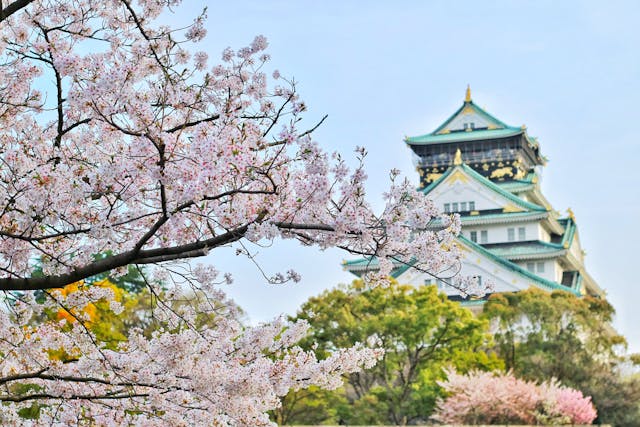7 Japanese Idioms & Proverbs to Impress
Japanese can be a beautifully poetic language, but many people would agree that it’s one of the hardest to learn by far. But why make things easy on yourself by learning a language that shares a lot in common with English? Japanese is a challenge and that’s what makes learning it so exciting – not to mention impressive. If your friends aren’t impressed by your use of these Japanese proverbs and idioms, you need new friends.
Table of Contents
→Sign Up Now: Free Trial Japanese Lesson With a Native Teacher!←
水に流す – Mizu ni Nagasu
Meaning: Let Flow in the Water
Has someone done you wrong? Remember this phrase – ‘let flow in the water’. Similar to ‘water under the bridge’, this expression emphasizes forgiving and forgetting instead of holding a grudge. It encourages letting go of past grievances and moving forward with a clean slate.
虎穴に入らずんば虎子を得ず – Koketsu ni Irazunba Koji wo Ezu
Meaning: Nothing Ventured, Nothing Gained
The literal translation of this saying is ‘if you do not enter the tiger’s cave, you will not catch its cub’. Similar to ‘nothing ventured, nothing gained’ or ‘no pain, no gain’, it means that without effort, you won’t achieve anything. In short, take risks if you want to attain your goals, but beware of the potential dangers!
七転び八起き – Nana Korobi Ya Oki
Meaning: Fall Down Seven Times, Stand Up Eight
We say ‘if at first you don’t succeed, try and try again’, but the Japanese say ‘fall down seven times, stand up eight’. This idiom encourages resilience and perseverance, reminding us to keep getting back up and trying again, no matter how many times we face setbacks.
猿も木から落ちる – Saru mo Ki Kara Ochiru
Meaning: Even Monkeys Fall from Trees
This phrase translates to ‘even monkeys fall from trees’, which is a gentle reminder that everyone makes mistakes and nobody is perfect. It emphasizes that even the most skilled individuals can have moments of failure. This Japanese proverb encourages a more forgiving and understanding attitude towards others’ errors.
酒は本心を表す – Sake wa Honshin wo Arawasu
Meaning: Sake Reveals the True Heart
In Japan, people believe that sake ‘reveals the true heart’, similar to the Latin phrase ‘in vino veritas’ (in wine, there is truth). Despite sake being referred to as rice wine, it’s brewed more like beer. Regardless, it has the same truth-revealing properties, exposing one’s true feelings and thoughts.
猫に小判 – Neko ni Koban
Meaning: Gold Coins to a Cat
In Japan, if someone gives a gift to someone who won’t appreciate it or makes a futile gesture, you can say it’s like ‘gold coins to a cat’. The English equivalent is ‘pearls before swine’. This is a Biblical reference meaning not to offer valuable things to those who won’t understand or appreciate them.
木の実は元へ落つる – Kino Mi wa Moto e Otsuru
Meaning: The Fruit of a Tree Falls Close to Its Root
The Japanese equivalent of ‘the apple doesn’t fall far from the tree’ is ‘the fruit of a tree falls to its root’. It means that children often resemble their parents, inheriting their traits, behaviors, and sometimes even their fates.
More Japanese Idioms and Proverbs
Which is the most famous Japanese proverb?
One of the most famous Japanese proverbs is “七転び八起き” (nana korobi ya oki). It means “fall down seven times, stand up eight.” It emphasizes resilience and perseverance.
What are some cool Japanese sayings?
Some cool Japanese sayings include “猿も木から落ちる” (saru mo ki kara ochiru) – even monkeys fall from trees, “酒は本心を表す” (sake wa honshin wo arawasu) – sake reveals the true heart, and “猫に小判” (neko ni koban) – gold coins to a cat.
Is there a Japanese proverb related to success?
Yes, “虎穴に入らずんば虎子を得ず” (koketsu ni irazunba koji wo ezu) translates to “if you do not enter the tiger’s cave, you will not catch its cub.” It means that without effort and risk, there is no reward. It is similar to “nothing ventured, nothing gained.”
What are some common Japanese slang phrases?
Common Japanese slang phrases include “やばい” (yabai) – cool or dangerous, “ウザい” (uzai) – annoying, and “すごい” (sugoi) – amazing. These phrases are widely used in casual conversation among younger generations.
→Sign Up Now: Free Trial Japanese Lesson With a Native Teacher!←
If these useful Japanese phrases have whetted your appetite for the Japanese language, try our Japanese level language test to see how much you know and join our personalized Japanese lessons. Whether you’re just starting or looking to improve, our lessons can help you master Japanese. We offer in-person Japanese lessons in New York and other cities, as well as online options for your convenience. Join us and start your journey to fluency today!




